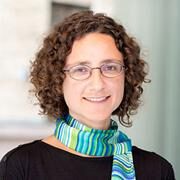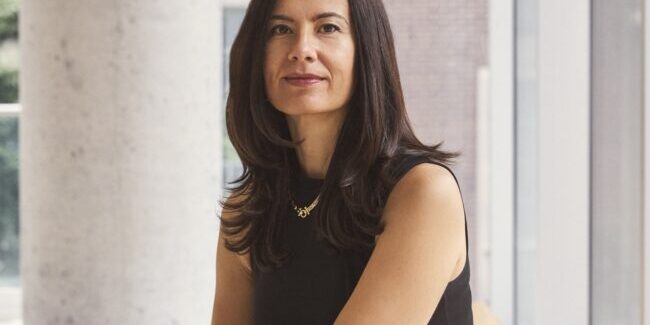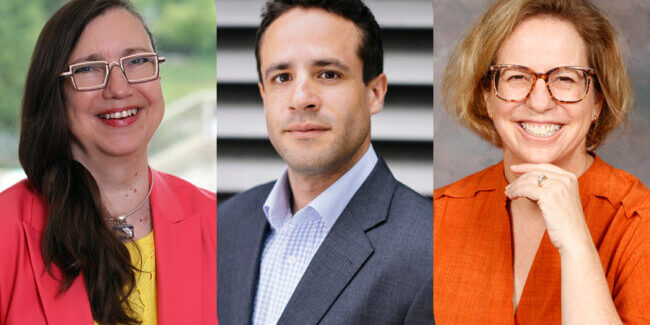Professor Emma Master (ChemE) has been named the inaugural Robert Korthals Chair in Sustainability.
The new chair was made possible by the generous donation from the estate of alumnus Robert “Robin” Korthals (ChemE 5T5). It will support Master’s research into biomanufacturing processes that mimic nature and convert underused renewable resources into materials that reduce our reliance on fossil fuels.
“One biomaterial that we know a lot about is cellulose, which is usually derived from wood, and is today the basis of paper and cardboard,” says Master, who also serves as Director of BioZone, a centre for industrial and environmental biotechnology research at U of T Engineering.
“What we’re looking at is using naturally occurring enzymes to functionalize cellulose in ways that impart useful properties — for example, by making it easier to spin into fibres. This could lead to sustainably sourced textiles that could displace those derived from non-renewable materials, such as polyesters or nylons.
“Bio-derived materials could also help displace single-use plastics in the packaging industry, which in turn would reduce levels of environmental microplastics.”
The new chair is the latest development in a long history of support for U of T Engineering and the Department of Chemical Engineering & Applied Chemistry by Robert Korthals.
He made his first donation in 1981, around the same time he became the fifth president of Toronto-Dominion Bank, a position he held until 1995. Over the decades, Korthals made dozens of generous gifts to support new buildings and infrastructure as well as programming aimed at supporting leadership education for engineering students.
Korthals, who died in 2023, was also a strong supporter of many other charitable causes in the GTA, including the Toronto Symphony Orchestra. His son Jamie Korthals says that he believed strongly in building a more sustainable world.
“U of T held a really special place in my father’s heart. For much of his life, he lived nearby and would often walk through campus — he just loved being close to that environment of learning and discovery,” says Korthals.
“He felt a deep connection to the university and believed strongly in giving back to the place that had given him so much. For him, supporting U of T through this new chair was a way to invest in future generations.”
“I think this is a particularly opportune time for Canada to lead in sustainable manufacturing and creating a prosperous, circular bio-economy,” says Master.
“We have a great supply of sustainably harvested renewable resources, as well as a highly educated and innovative society. Through this chair, I hope to build new networks and alliances to help de-risk the technologies that will get us there.”
Master emphasizes that building connections with local communities is also a critical part of this work.
“We sometimes hear concerns that the bio-economy means harvesting more of the forest, or that it might impact biodiversity,” she says.
“But as I mentioned, Canadian forestry resources are very well managed, and we are very much focused on using residuals and wastes in ways that enable us to do more with less.
“Still, any time we deploy new technologies, we need to ensure that we don’t make unforeseen mistakes. That’s why it’s so important for us to engage with local communities to understand where they see risks — and where they see opportunities. This chair will also help us do that.”
Jamie Korthals says that his father would have deeply respected the focus of the new chair.
“He would have really admired the kind of work Professor Master is doing,” says Korthals.
“He believed in human ingenuity and the idea that we can find better ways forward — especially when it comes to using our resources more wisely.”
“My dad grew up in a time when natural resources were seen mostly as opportunity. But over time, he began to reflect more deeply on the consequences. This chair reflects where he was later in life — more attuned to environmental challenges and committed to supporting solutions. It’s a legacy that aligns with where he hoped the world was heading.”





